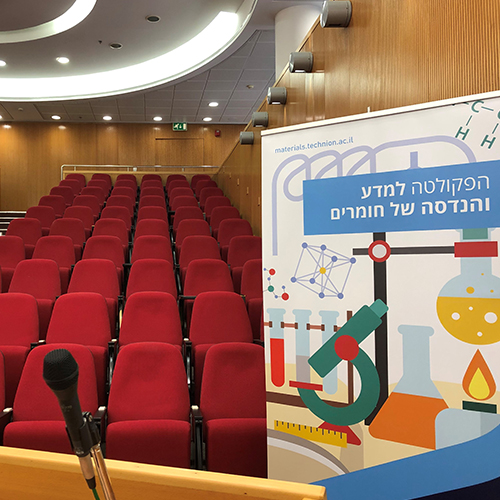
Dr. Amnon Rothman
04/01/2024
אודיטוריום ע"ש דויד וואנג, בניין מידן, קומה 3
14:30
Noble metal thin films have attracted significant interest due to their distinctive properties and structures, making them ideal for microelectronics, catalysis, energy, and photovoltaics applications. While several parameters influence the properties of these metals for such applications, the deposition process remains a critical factor. Atomic Layer Deposition (ALD) stands out as a prevalent deposition technique due to its surface-sensitive nature. The ALD process is characterized by its self-limiting surface reactions, promoting a layer-by-layer growth mechanism and allowing for precise control over film thickness and conformality. However, challenges arise in achieving continuous, pinhole-free noble metal ALD layers on oxide surfaces, often resulting in low film quality. These challenges can be traced back to the lack of adequate nucleation sites and the poor wettability of the low-surface energy substrates. The research studied the impact of substrate surface functionalization using organometallic molecules, such as trimethylaluminum (TMA) and diethylzinc (DEZ), on the nucleation and growth of Ru layers. The results reveal an enhancement in both nucleation density and the average diameter of the Ru nanoparticles deposited, and these improvements were attributed to an increase in both nucleation sites and elevated surface diffusivity. The latter effect is speculated to result from a reduction in the substrate's surface free energy. This research serves as an important step in optimizing the ALD process for various applications by tailoring substrate selection.
Host: Prof. Eugen Rabkin
Light refreshments will be served before the seminar.
Please bring your cup with you


